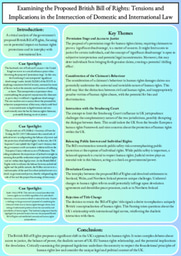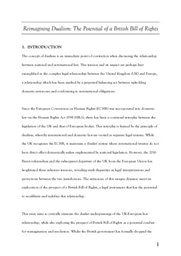Embarking on the Laidlaw Scholarship, I was propelled by a mission to not only excel academically but also to evolve as a steward of ethical leadership and a proactive global citizen. This prestigious program, spanning two transformative years, has offered me an unparalleled platform to delve into the intricacies of leadership and cultivate a borderless perspective on societal impact. As I reflect on the myriad experiences that this scholarship has afforded me, from intense academic research to the rich tapestry of global engagement, the core values of integrity, respect, and responsibility have been my guiding compass.
YEAR ONE:
As my first year with the Laidlaw Scholarship commenced, it became a period of intellectual seeding—planting the roots of what would grow into a robust understanding of ethical leadership and its profound implications. The curriculum, meticulously designed, wove together theoretical knowledge with real-world applications, providing a strong foundation in the principles of moral leadership. Through seminars and workshops, I grappled with complex concepts, learning to navigate the often murky waters of ethical decision-making. This was not education in a vacuum; it was learning with the purpose of application, where each lesson was a stepping stone to actionable insights.
My research project titled "Reimagining Dualism: The Potential of a British Bill of Rights" offered a vivid canvas to apply these principles. It was here that the abstract notions of rights, responsibilities, and the rule of law took tangible form. I delved into the nuanced debates surrounding national versus global human rights standards, the intersections of law and morality, and the responsibilities of states versus those of individuals. This exploration was not merely academic; it was a quest to understand how legal frameworks can embody ethical leadership on a global scale and how, as a scholar, I could contribute to this discourse.
In the microcosm of this research, I found the macrocosm of global citizenship calling out. It urged consideration of perspectives beyond my immediate surroundings, fostering an appreciation for the rich diversity of global legal traditions and human experiences.
YEAR TWO:
The second year of my Laidlaw Scholarship was a transformative expedition beyond the classroom, taking me to South Africa. This was the year of my LiA, where the theoretical frameworks of ethical leadership and global citizenship were put to the sternest of tests. In the bustling townships and serene landscapes of South Africa, my understanding of leadership was not just applied but challenged, expanded, and ultimately deepened.
It was here, in South Africa, where the lessons learned from my research on "Reimagining Dualism: The Potential of a British Bill of Rights" were brought into stark relief against the backdrop of a country grappling with its own complex legal and human rights journey. The contrast between the UK’s legal discussions and South Africa’s vivid rights-based activism provided a unique comparative perspective that enriched my comprehension of global legal standards and ethical leadership within different cultural contexts.
My Leadership in Action project was centred around supporting the Knysna Education Trust (KET), an organisation dedicated to the advancement of early childhood development. This endeavour demanded more than academic knowledge; it required the heart of a leader willing to serve, listen, and learn. I worked alongside local educators, learning first-hand the challenges they face and the resilience they harbour. My role transcended mere participation, as I found myself advocating for sustainable educational practices and inclusive policies that would resonate with the global standards of child rights and welfare.
This LiA phase was an opportunity to embody global citizenship by engaging with a community whose realities were different from my own yet shared a common thread of humanity. Every interaction, every shared story, and every collaborative effort was a lesson in ethical leadership. It reinforced the necessity of cultural sensitivity, the importance of adaptability, and the impact of empathetic engagement.
In the bustling markets, the laughter of children, and the solemnity of educational challenges, I saw the threads of a global tapestry that any leader, any citizen of the world, has a duty to understand and respect. It was a reaffirmation that global citizenship is not a passive label but an active commitment to fostering positive change, rooted in the ethics of leadership and the spirit of mutual progress.
GLOBAL LEADERSHIP:
In reflecting on the culmination of my Leadership in Action project in South Africa, I find myself pondering the intricate relationship between service and leadership, between the individual and the collective. As I engaged with the Knysna Education Trust, my role evolved from observer to participant to advocate, each step driven by an underlying commitment to ethical principles and a keen awareness of my responsibilities as a global citizen.
The classrooms of Knysna, teeming with the potential of young minds, were where my leadership skills were both honed and humbled. Here, the essence of ethical leadership transcended academic theory, manifesting in the real-world application of supporting and empowering educators and students alike. This practical application extended beyond the confines of traditional education, encompassing the holistic needs of children and their communities.
Moreover, this journey was one of personal growth, as I learned that leadership is as much about listening and learning as it is about guiding and influencing. The vibrant culture, resilient spirit, and warm hospitality of the South African people enriched my understanding of global citizenship. It was in the shared meals, the communal celebrations, and the collaborative efforts that the true meaning of being a global citizen came to life—a shared commitment to bettering our world through compassionate action and ethical leadership.
The impact of my time with KET was bidirectional; while I contributed my energy and insights, I gained immeasurable knowledge and experience in return. These lessons will not be archived with the completion of the project but will continue to resonate with me as I move forward in my academic and professional journey. The values instilled by the Laidlaw Scholarship, coupled with the lived experiences of my LiA project, have galvanized my resolve to lead with ethics at the forefront and to act with a global consciousness.
As I stand on the threshold of the future, I carry with me not only the memories of South Africa but also a reinforced vision of my role as an ethical leader in an interconnected world. My commitment to global citizenship is not bound by the duration of a scholarship but is a lifelong pledge to uphold the principles of equity, justice, and shared prosperity. In every step I take, I will strive to embody the ideals that have shaped me over the past two years, ensuring that the seeds of change planted during my Laidlaw Scholarship continue to flourish wherever my journey takes me.
LESSONS LEARNED:
Among the most salient lessons learned is the nuanced understanding of ethical leadership. It is not just a buzzword but a complex synthesis of actions, decisions, and underlying motivations. It demands a leader to be self-aware, to constantly evaluate the moral implications of their choices, and to lead by example.
I have learned that ethical leadership is inherently tied to the delicate balance of power and responsibility. It requires an unwavering commitment to do what is right, not just what is easy or expedient. This entails making tough decisions, standing up for one's beliefs, and sometimes, going against the grain to uphold ethical standards. It also involves recognizing the impact of one's actions on others and considering diverse perspectives before making decisions.
Global citizenship, another cornerstone of the scholarship, has taught me about the interconnectedness of our world. It has expanded my understanding of how local actions can have global consequences and vice versa. This realization has instilled in me a sense of responsibility to act with consideration for the broader global community and to strive for solutions that are sustainable and equitable.
One of the most profound lessons from my time in South Africa is the importance of empathy and cultural sensitivity. Working with KET, I learned that to effectively lead and serve in a global context, one must be willing to listen and learn from those who are deeply embedded within the community. It is about embracing diversity, not just as a concept, but as a reality that enriches our collective human experience.
Furthermore, I've learned the significance of adaptability and resilience. The ability to navigate change and uncertainty has proven to be an invaluable skill, particularly in a world that is ever-evolving. The challenges I faced required a flexible mindset and the capacity to persevere in the face of adversity—traits that are indispensable for any leader.
Finally, the Laidlaw Scholarship has taught me that leadership and learning are inextricable. The true essence of leadership lies in a leader's willingness to continue learning and growing. This programme has instilled in me a lifelong love for learning and an unquenchable curiosity about the world and its people.
As I move forward, these lessons will serve as guiding principles, shaping not only my professional trajectory but also my personal ethos. The experiences I have gained and the wisdom I have accrued during my time as a Laidlaw Scholar form a blueprint for my future endeavours as an ethical leader and a committed global citizen.


Please sign in
If you are a registered user on Laidlaw Scholars Network, please sign in